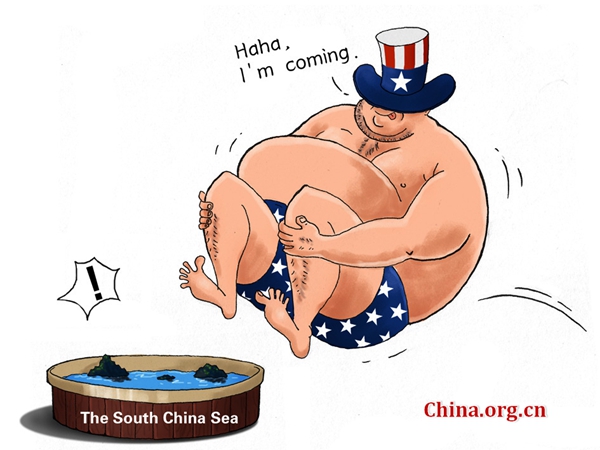Power limits count in Sino-US relations
- By Jia Qingguo
 0 Comment(s)
0 Comment(s) Print
Print E-mail China.org.cn, January 27, 2016
E-mail China.org.cn, January 27, 2016
|
[By Zhai Haijun/China.org.cn] |
A new pattern and trend have appeared in the continuous evolvement of Sino-U.S. ties in recent years.
The new pattern refers to the phenomenon that tensions escalate between the two countries immediately after they have engaged in dialogue, while the new trend refers to the fact that Sino-U.S. relations are mired in a slump.
Dr. David M. Lampton, director of SAIS-China and China Studies at the Johns Hopkins School of Advanced International Studies, believes relations are reaching a "tipping point," because "some critical underlying supports for predominantly positive U.S.-China ties" are eroding, and more and more people on both sides, especially the elites, regard the other country as the main challenger or an obstacle to the advancement of their own country.
Dr. Lampton's view is now being shared by an increasing number of scholars. However, they should also understand that the two countries are seeking more opportunities for cooperation on the crucial climate issue, bilateral investment agreement negotiations, negotiations on the proliferation of weapons of mass destruction, maintaining the security of maritime shipping lane, fighting corruption and responding to cross-border endemic diseases.
Despite mounting friction, China and the U.S. will not start a war against each other, because the cost is too high given their mutual independence, and they can always find other means to safeguard their own interests.
With rising interest in the current international order, China will not seek to challenge it. China is not seeking to make the Asian Infrastructural Investment Bank, which it took the lead to establish last year, different from other international financial agencies; certainly, it has no intention to replace the World Bank or the International Monetary Fund. The AIIB is intended to supplement the current international financial order, not become a replacement.
The deeper China merges into the current international order, the more common interests it shares with the U.S. in safeguarding that particular order.




Go to Forum >>0 Comment(s)